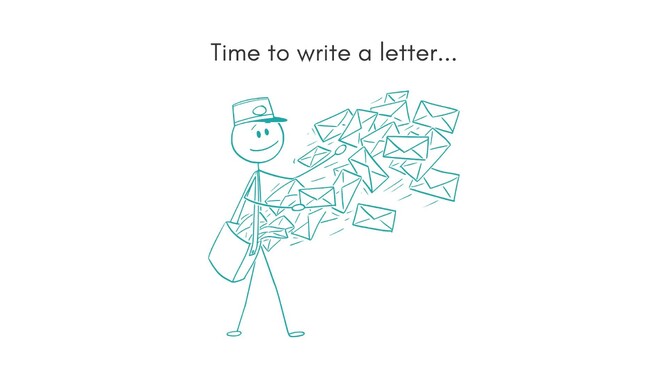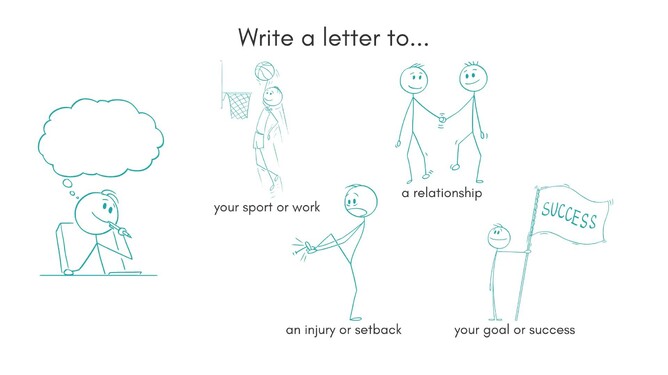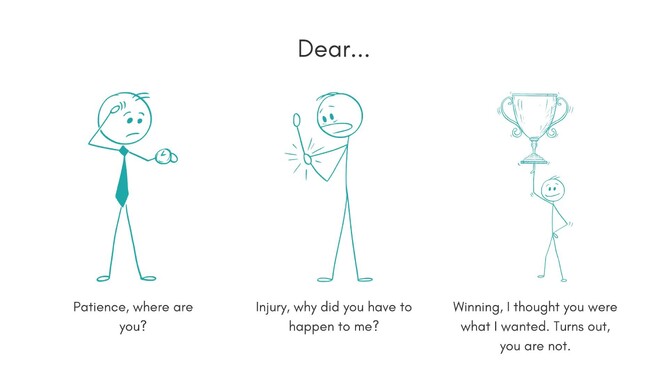Remember the excitement of receiving a letter in the post when you were a kid? Somehow, that joy disappears when those letters are replaced with the letters that hold the bills we must take care of as grown-ups.
I recall a conversation with my brother, who was complaining that he wasn't receiving any nice letters or postcards. And I remember asking him, ‘Well, how many nice letters or postcards have you written lately?’ You can guess his response. You are likely to be right.
There is something about someone taking the time to sit down and hand-write you a note, a postcard, or a letter. And those can be nice things to keep too - on your fridge or in a box somewhere that you will struggle to throw out in a few years.
While I think writing those kinds of letters and postcards is a nice thing to do, and I would definitely encourage you to do that again sometime, this blog isn’t actually about that kind of letter.
Instead, this blog is about more personal letters, letters only you will read; letters where the very act of writing them gives you greater insight into who you are, what you want, what you think, how you feel, and so on.
From time to time, I use these sorts of letters with athletes or clients. I encourage them to write a letter like this, particularly when a situation, a relationship, or situationship has gone on for a while or an issue has been on their mind for some time.
Here are a few examples of letters people have written over the years:
A letter to their sport.
A letter to a setback.
A letter to a disappointment.
A letter to a success.
A letter to an injury.
A letter to deselection.
A letter to an emotion or a feeling.
A letter to a relationship/friendship (not the person, the relationship).
A letter to a dream (e.g. becoming an Olympian).
A letter to a difficult decision.
Etc.
Write the letter as if you are addressing a person.
A letter to my sport would start like this:
Dear Rowing…
Wow, what a journey we’ve had so far…
Here are some more examples:
Dear Broken Collarbone,
Of course, you had to show up at exactly the wrong time…
Dear Patience,
Where are you when I need you most? …
Dear World Record…
Somehow I imagined you’d feel different…
Dear Relationship with <Person>,
I’m trying to make sense of you.
Use the letter to write down whatever you would like to say to it. Many people find writing a letter to a ‘thing’ like it is a person helps them articulate what has sat inside them in silence for too long. Writing a letter to an injury often brings out layers of frustration, sadness, concern, anger, and desperation. It also brings out what athletes have learned from it.
You can see how this is likely to be richer and more nuanced if this is a situation someone has been in for a while or a cause or relationship someone has been committed to for a longer period.
In letters to wins or successes people often discover how short-lived the moment of success feels and how quickly both the world and they themselves move on to the next thing. Letters to relationships often reveal the layers of different feelings a person experiences when thinking about the other person and their relationship. It is rarely straightforward. But writing helps clarify what they are feeling, what they are experiencing. In some way, writing these letters untangles the different elements and makes them clearer.
If you are unsure where to start or where to go with this, have a look at Kobe Bryant’s letter to Basketball. It is a beautiful example (and one for which he won an Oscar). You can view it here
Dear Basketball - by Kobe Bryant
Have a go at writing your own letter. Before you do, think about what or whom you would like to write a letter to. Be aware that it might bring up some emotion. That's the point. Choose a time and a place where you won’t be interrupted. And, if you are a stationery nerd like me, choose nice paper and a nice pen.
If you need more inspiration, you can also listen to Dear Patience, a song by Niall Horan.
And then just write. Don’t censor yourself, don’t worry about spelling and grammar, just write. It doesn’t have to be perfect. This is likely your first time doing this, so just see what comes up for you. Also, if handwriting is a barrier for you, you can type it, dictate it into your phone, you can record a video, you can draw, or you can do whatever else will get those thoughts out of your head.
The idea of writing a letter like this is simple. Doing it will not necessarily be easy.
That’s me for another week. If you know someone else who might find this interesting, please share it with them.
Key points:
Writing a letter to an experience or a relationship can help you clarify what you think and feel about that situation.
Address the experience or relationship as if it was a person.
Write down anything that comes up for you.
Reflective question:
When was the last time you wrote a letter to anyone?
What different experiences or things could you write a letter to? Start with one.
How do you feel now, after you have written it?
Reference:
Dear Basketball - first published here as a free verse poem https://www.theplayerstribune.com/articles/dear-basketball
Niall Horan, "Dear Patience" from Heartbreak Weather (2020)




